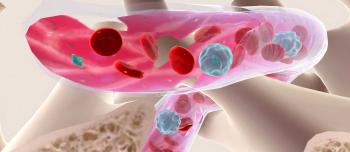Sangamo Therapeutics, Inc and Pfizer, Inc. recently announced interim data from the phase 1/2 Alta study designed to evaluate SB-525, the company’s investigational gene therapy for people with hemophilia A/factor VIII (FVIII) deficiency. SB-525 is the product of a global collaboration between Sangamo and Pfizer for the development and commercialization of hemophilia A gene therapy programs.
The trial is an open-label, dose-ranging clinical study designed to assess the safety and tolerability of SB-525 in up to 20 adults with severe hemophilia A. The investigational therapy is developed using adeno-associated viruses (AAVs) as delivery vehicles, or vectors, to carry the genetic codes that initiate the production of the deficient factor protein—in this case, FVIII. The AAVs deliver this genetic material into liver cells, without causing disease or triggering significant immune responses.
According to a new Sangamo press release, eight patients have been administered SB-525. The therapy was “generally well-tolerated” and demonstrated a dose-dependent increase in FVIII levels across four different dosing groups, each with two patients. The fourth and most recently added group, received the largest dosage in this “dose ascending” trial. Those two patients achieved 140% and 94% of normal FVIII levels when measured six weeks after administration of SB-525. The company also reported a reduction in the use of FVIII replacement therapy and zero bleeding events.
Enrollment for the fourth trial group, which will eventually be expanded to five patients, is currently underway.
“The interim results with SB-525 gene therapy for patients with severe hemophilia A are early but very promising,” said Barbara Konkle, MD, Bloodworks Northwest and Professor of Medicine at University of Washington and investigator of the Alta study. “It will be important to observe additional patients and for a longer follow-up duration to determine whether these positive interim findings are recapitulated and sustained.”
Source: Sangamo press release dated April 2, 2019





